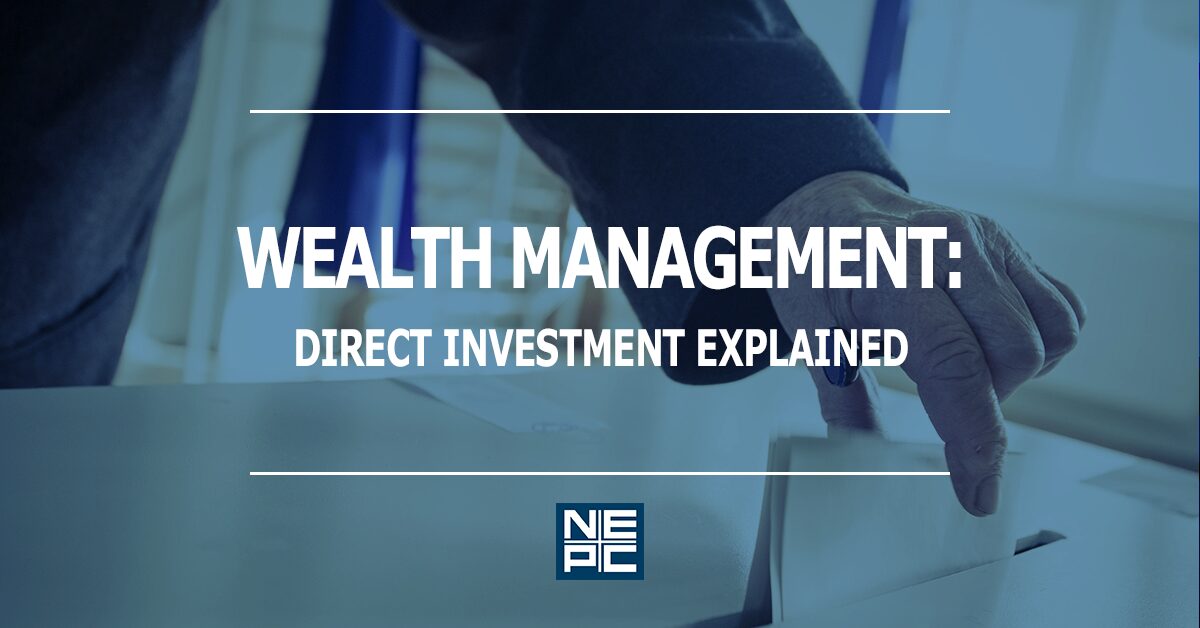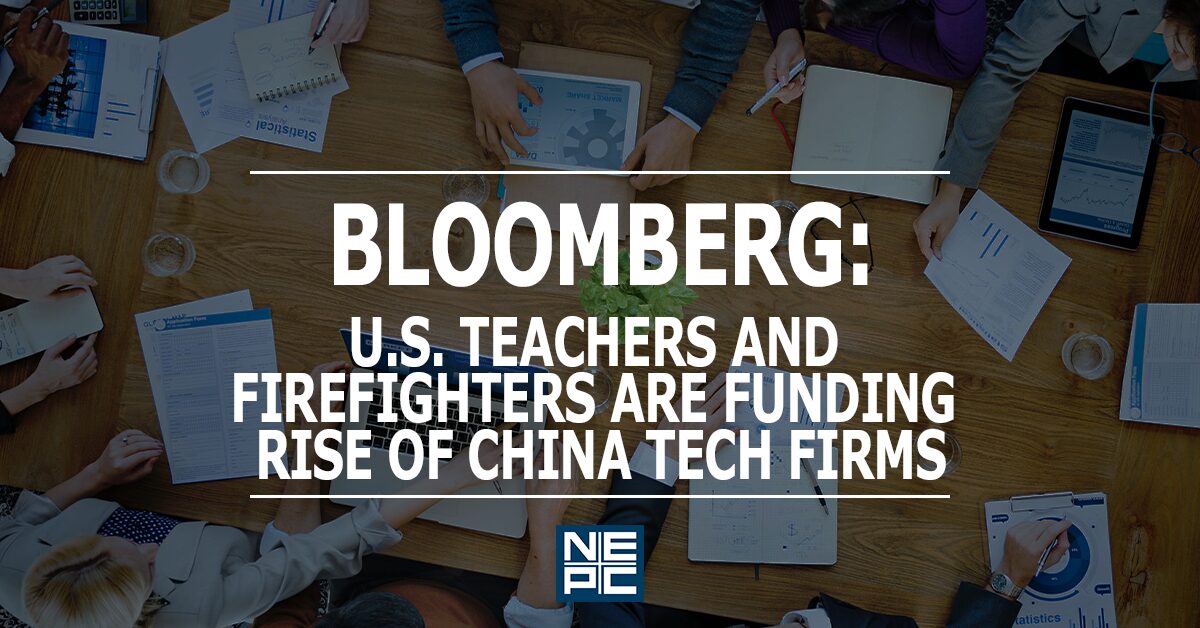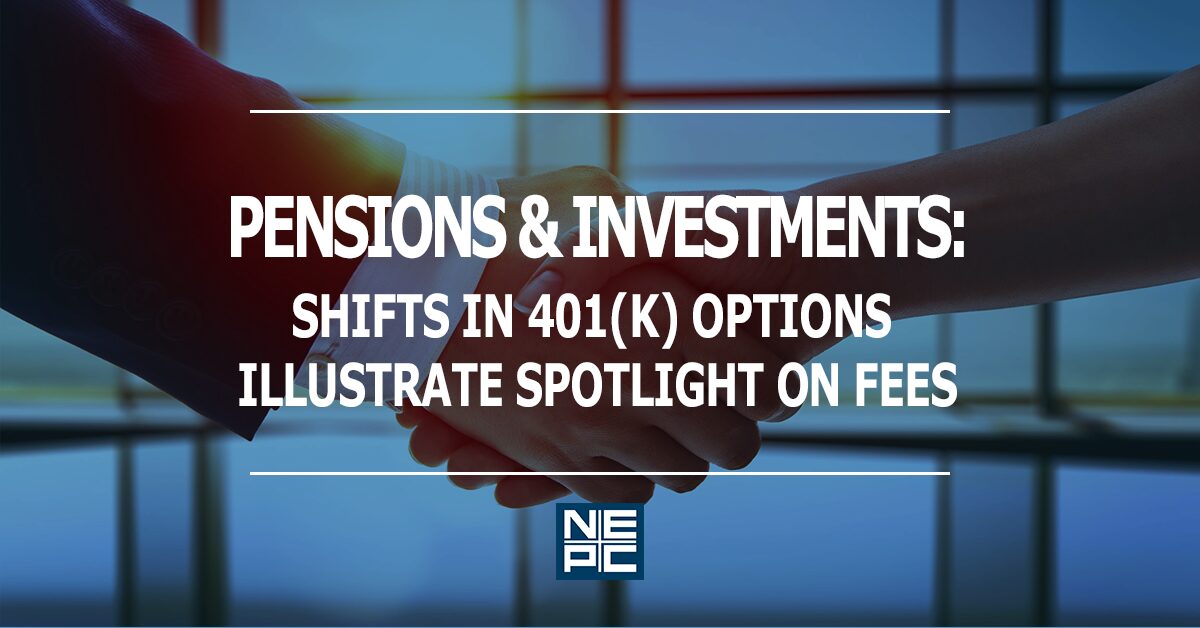Wealth Management: Direct Investment Explained
NEPC Private Wealth’s Paul Kenney wrote a three-part series on direct investing. The first piece in the series was published in Wealth Management. View the piece on their site here.
Forbes: Does an Inverted Yield Curve Always Predict a Recession?
Bloomberg: U.S. Teachers and Firefighters are Funding Rise of China Tech Firms
Pensions & Investments: Shifts in 401(k) Options Illustrate Spotlight on Fees
NEPC's Ross Bremen was quoted in a recent article from P&I focused on key themes affecting the 401(k) space. Read the article below or on Pension & Investment's site here.
Changes made to the investment lineups of corporate 401(k) plans in 2018 reflect U.S. sponsors' ongoing focus on fee savings and fiduciary responsibilities, a Pensions & Investments analysis of recently released 11-K filings shows.
P&I analyzed reports filed between May 24 and July 25 with the Securities and Exchange Commission and found that 73 U.S. corporate 401(k) plans changed managers of at least one investment option. Those plans had assets totaling $243 billion and added a total of 171 new investment options from 52 managers in the year ended Dec. 31. Plans in that same universe removed 183 investment options from 61 managers during the same period.
Overall, the majority of fund changes involve equity investment options, data shows.
Among the 986 11-K filings observed over the period, 73% of changes were changes in equity options, while 10% involved fixed-income funds. Changes in target-date fund lineups accounted for 6% of changes, 4% in stable value funds and the rest in other asset classes.
In filings that provided such information, plans added 102 active funds and 57 passive funds and removed 109 active funds and 49 passive funds.
Defined contribution plan consultants say while no big surprises emerged in 2018, plans continued the trend of emphasizing fee savings and taking a closer look at their lineups in general.
Ross Bremen, a partner at investment consultant NEPC LLC, Boston, said that plans have been influenced in part by the raft of fee-related fiduciary lawsuits in recent years to examine their lineups more closely than in the past.
"There have been so many of these suits over time," he said. "It's been a variation on the theme, and so yes, to some extent fee levels themselves have been an issue."
"Even among passive managers, for example, there have been concerns about whether the cheapest fund available was in place (and) questions whether mutual funds should be used (or) cheaper collective trusts should have been considered when available."
Pensions & Investments: A 'Difficult Period' Pushes DC Assets into the Basement
Healthcare Organizations Maintain Economic Optimism Despite Geopolitical Concerns
— Only 25 percent of healthcare institutions expect the economy to worsen in 2019 —
BOSTON–(BUSINESS WIRE)–NEPC, LLC one of the industry’s largest independent, research-driven investment consulting firms, today announced the results of their latest Healthcare Operating Funds Survey, which gauges healthcare organizations’ outlook on the economy and examines how healthcare operating pools are invested.
The survey reveals participants’ investment strategies for 2019 are unlikely to change, despite an expectation from the majority (84 percent) of respondents that U.S. equities will increase by six percent or more in 2019. This optimism extended to investors’ outlooks for the overall economy and healthcare industry. Only 25 percent of respondents indicate the economy is in a worse position in 2019 when compared to last year and over a third believe their healthcare organization is better positioned this year.
Additional top findings include:
- Investors appear to have reduced risk: After observing an increased risk profile last year, participants reduced their risk profile following a spike in 2018 volatility. Notably, investors reduced their allocations to alternative investments (by 4 percent on average) and increased their exposure to fixed income assets (by 3 percent on average).
- Healthcare organizations maintain an optimistic economic outlook: Three-quarters of respondents indicated that the economy is either unchanged year-over-year or is well-positioned, while only 25 percent believe it is in a worse position relative to last year. When it comes to the outlook on organizational health, 78 percent of respondents believe their organization is either unchanged year-over-year (42 percent) or is better positioned than it was in 2018 (36 percent).
- Most respondents expect U.S. equities will be the best performing asset class: The majority of respondents (59 percent) expect U.S. equities to be the best performing asset class, up from only 13 percent last year. Eighty-four percent of respondents expect the asset class to return at least 6 percent in 2019, with only 8 percent indicating an expectation of negative returns. These strong market sentiments were buoyed by low expectations for interest rate increases. About 4 in 5 (79 percent) of respondents indicate they expect rates to maintain their current level or shift lower.
- Despite high expectations for U.S. equity returns, investment portfolios are unlikely to change: Despite significant expectations for returns on U.S. equities, 72 percent of respondents indicated that they don’t anticipate making changes to their investment strategy. This is likely due to potential global threats respondents see in the markets: Geopolitical uncertainty was listed as the greatest investment risk, followed by a potential global slowdown.
“While the outlook for the healthcare sector continues to be optimistic, geopolitical risk and resulting capital market volatility continue to weigh on organizations’ minds,” said Kevin Novak, Consultant at NEPC and a member of the firm’s Philanthropic Practice Group which services healthcare systems and endowments and foundations. “Last year’s turbulent market has left lasting impressions on healthcare investors, who recognized the impact that investment risk has on the organization.”
This survey highlights the need for healthcare institutions to evaluate risk at an organizational level, particularly within a sector replete with operational nuances and constraints. Evolving demands, healthtech innovations and an increase in digital health options for patients have led to industry-wide organizational change, meaning it’s more important for healthcare institutions to continually assess their risk and adjust their investment strategies to account for these changes.
“As an independent consultant, we are keenly aware of the growing importance of collaboration when it comes to analyzing disparate investment pools and building healthcare investment strategies from a holistic lens,” said David Moore, partner and practice leader for NEPC’s healthcare consultants. “It’s only through this big-picture thinking that investors can truly execute incisive investment strategies, allowing healthcare organizations both large and small to fulfill their mission while delivering the best patient care.”
For more information, view the full survey and infographic.
About the Survey
This NEPC survey was conducted online by the Healthcare Practice Group in April/May 2019. Respondents represented a diverse set of organizations in the healthcare investing sector. Copyright is held by NEPC.
About NEPC, LLC
NEPC® is an independent, full-service investment consulting firm, providing asset allocation, manager search, performance evaluation, and investment policy services. We work with discerning investors on both an advisory and discretionary basis. We service 360 retainer relationships, representing assets of $1 trillion with over $90 billion in healthcare-related assets, from our offices in Boston, Atlanta, Charlotte, Chicago, Detroit, Las Vegas, Portland and San Francisco. We encourage your comments and feedback, as well as any inquiries you may have about our firm or our consulting services. Learn more at https://www.nepc.com/focus-areas/healthcare
Pensions & Investments: Bond ETFs hit $1 trillion, now set for takeoff
Read more





